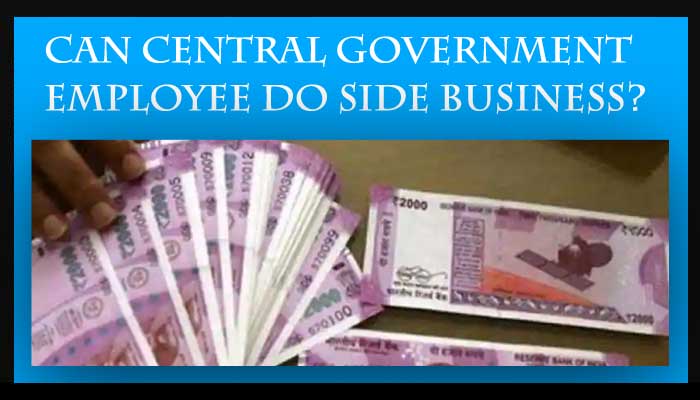Can central govt employees do side business?
It is a well-known truth that government employees cannot do private business. Under the All India Service Rules (Conduct) of 1968, Central Government employees are forbidden from engaging in any commerce or enterprise. Other restrictions, such as the Central Government (Conduct) Rules, prohibit the same behaviour.
Employees of the government are not permitted to engage in private enterprise unless they have received previous authorisation from the government. State government employees have distinct service regulations than central government employees, however state government laws are modelled after the union government.
Latest DoPT Orders 2021
- Engage directly or indirectly in any trade or business
- Undertake or negotiate for any other employment
- Canvass for an elective candidate or hold any elective office
- Portray support for any insurance or commission business owned or managed by any of his family members
- Engage in registration, promotion management of any bank or company registered or liable to register under the Companies Act 2013 or any co-operative society for commercial purposes; other than to discharge his official duties
- Associate himself in any sponsored media program produced by a private agency including video magazine, except in an official capacity where the program is commissioned by the Government
- Accept any fee for work done by him for a private or public body, unless the government orders so.
- Sublet or allow any occupation to be conducted in the Government accommodation provided to him.
At the same time, the rules allow central government employees to work in some sectors without the government’s prior permission.
- Participate in social or humanitarian honorary work
- Work on literary, artistic, and scientific projects on a sporadic basis
- As an amateur, participate in sports activities.
- Except in circumstances of holding elective office, participate in the registration, promotion, or management of literary, charitable, or scientific work, or of a comparable club or organisation aimed at sports, cultural, or recreational activities, registered under the Societies Registration Act, 1860.
- Except in circumstances of elective office, participate in the registration, promotion, or management of a Co-operative society that is primarily for the benefit of Government employees and is registered under the Co-operative Societies Act of 1912.
Even though business is prohibited, GG employees are permitted to make money via a variety of alternative sources or activities.
- Farm/agricultural income
- Income from renting of their property
- Investment in shares. But cannot engage in intraday trade or speculative activities.
- Rewards from government
- Honorarium from various types of permitted activities like taking lecture in Academies
- Special pay when posted in National Academy (around 24% of total pay)
- Deputation and hard-duty allowance
- Special pay for several types of assignment
- Daily allowance in foreign postings and tours
- Royalty from books and publications
Despite the fact that the ban remains in place, many employees are turning to alternative hobbies or companies to supplement their income. However, if discovered and proven, it is subject to disciplinary punishment, which may include job termination and the loss of retirement benefits. Others do business in the names of their wives, children, or other family members. It’s an ethical issue here. Other revenues are banned for government personnel for a variety of reasons.
A government employee is required to carry out his responsibilities to the public with the highest objectivity and honesty. Carrying on their own private company may risk their responsibilities to the country, which cannot be tolerated. The majority of government employees are members of the country’s legislative bodies, therefore starting a business would be a conflict of interest. In the interest of the company, there are also corruption investigations.
To summarise, a government employee who wants to start his own business must first resign from his ‘Government Post.’
No, A government employee is not permitted to run a private business or work elsewhere as a part-time or full-time employee. This is against government policy, and anyone discovered doing so may face criminal charges.
No. Government employees are prohibited from conducting business or working in any other way by CCS rule. However, there are several jobs that family members of government officials can conduct that aren’t considered unlawful.

